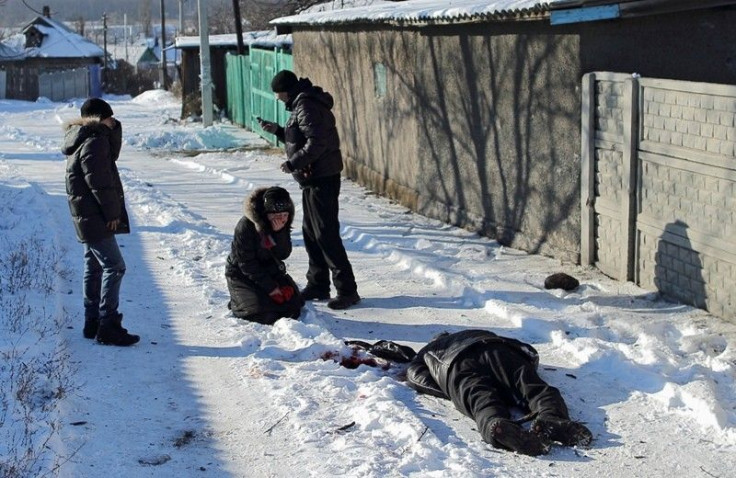UK Role In Russia-Ukraine Conflict Questioned; US Commander Claims Russian Troops Fighting In Debaltseve

The UK government has been accused of taking a backseat in diplomatic talks with Russia to put an end to the conflict in Ukraine. British Foreign Secretary Philip Hammond hit back at critics and said the government maintains its policy of providing non-lethal aid to Ukraine.
He defended UK’s role in the crisis and insisted that German Chancellor Angela Merkel is the best person to negotiate with Moscow. Hammond said the UK already played a leading role in developing sanctions. The British government helped in identifying people, businesses and industries to be targeted by sanctions, reports The Guardian.
UK response to Ukraine crisis
Douglas Alexander, shadow foreign secretary, had questioned Hammond about the UK choosing to “take such a back seat” in negotiations. He mentioned the comments made by General Sir Richard Shirreff who said Prime Minister David Cameron was a “diplomatic irrelevance.” Alexander had brushed off Hammond’s earlier response in an interview with Sky News that it would not be effective to have a committee trying to negotiate with Russia.
Hammond had responded to Shirreff’s statements and said the general should consider the meaning of the word “irrelevance” and consider its best application. The British foreign secretary believes the government had the right to rethink its decision not to send weapons to Ukraine. When Alexander asked what would prompt the government to reconsider offering lethal aid, Hammond said the UK could not allow the army of Ukraine to collapse.
The outcome of negotiations between Ukraine, Russia, Germany and France in the Belarusian capital is being closely watched. Ms Merkel met with U.S. President Barack Obama in Washington last Feb. 9 to discuss updates regarding the proposal of France and Germany in the peace talks.
More than 20 people in eastern Ukraine have been killed ahead of the negotiations. BBC reports that five people were killed in the rebel territory Donetsk while 19 troops from the Ukrainian army died.
Continuous aggression in Ukraine
Meanwhile, the advances of pro-Russian separatists may have dimmed hopes of a successful deal in Belarus. According to Reuters, European officials find it difficult to believe that the rebels will agree to stop fighting and return to their previous positions after weeks of gaining ground.
RIA News reports that an anonymous Russian source claimed there were no plans of signing an agreement to resolve the conflict since the focus will be the creation of a demilitarised zone. The Obama administration revealed that Mr Obama has been urging Mr Putin to agree to a peace deal. In a statement, the White House said the “costs” for Russia will increase if it continues its aggression in Ukraine.
U.S. Army Europe commander Ben Hodges claimed that Russian troops were fighting along the front lines of Debaltseve. He said it was obvious from the type and amount of ammunition. He believes Russia has direct military intervention in the area, reports Business Insider. The commander also expressed his concern of separatists moving on to major sites in Ukraine once Debaltseve falls.
To report problems or leave feedback on this article, contact: r.su@ibtimes.com.au





















